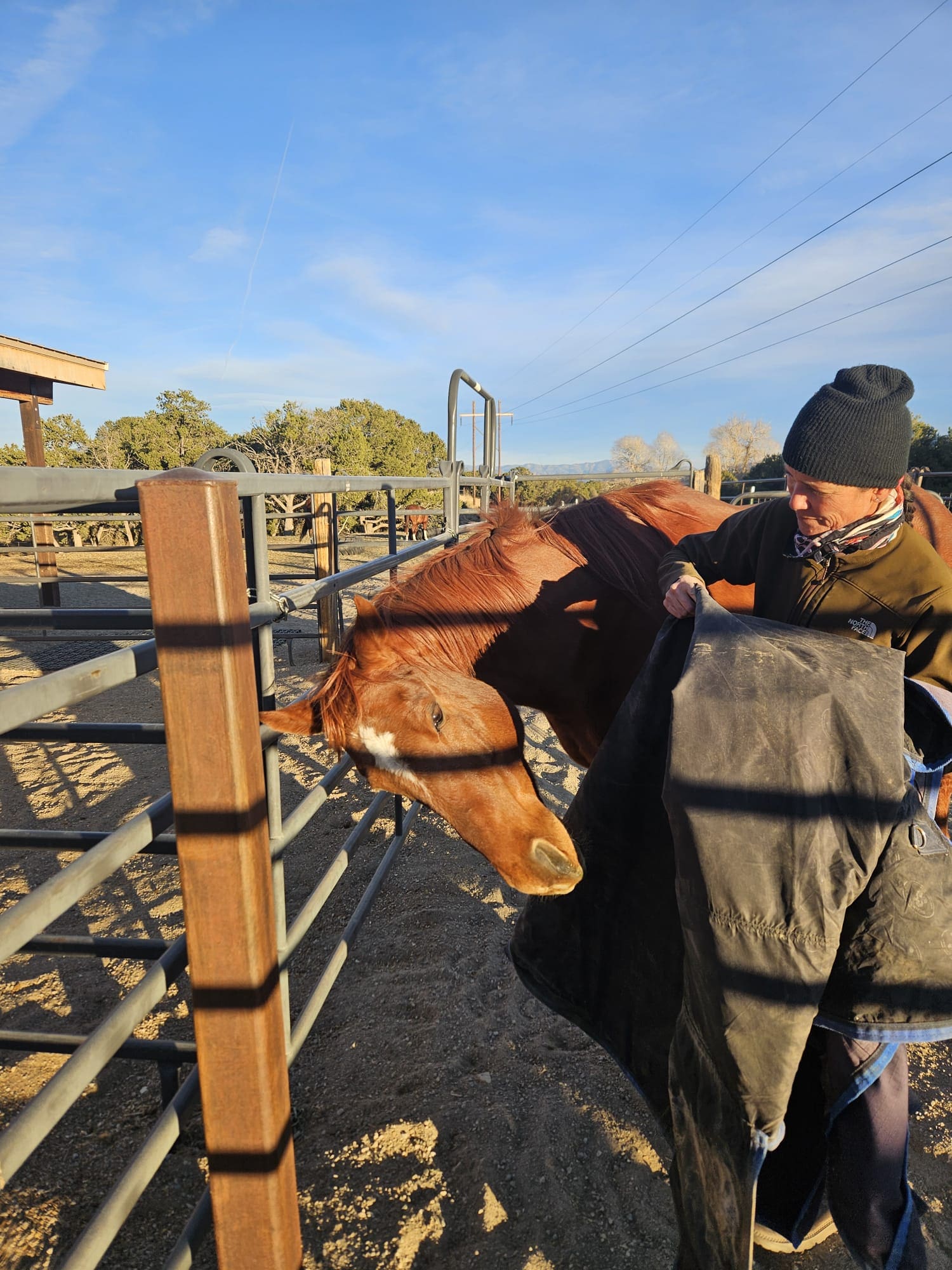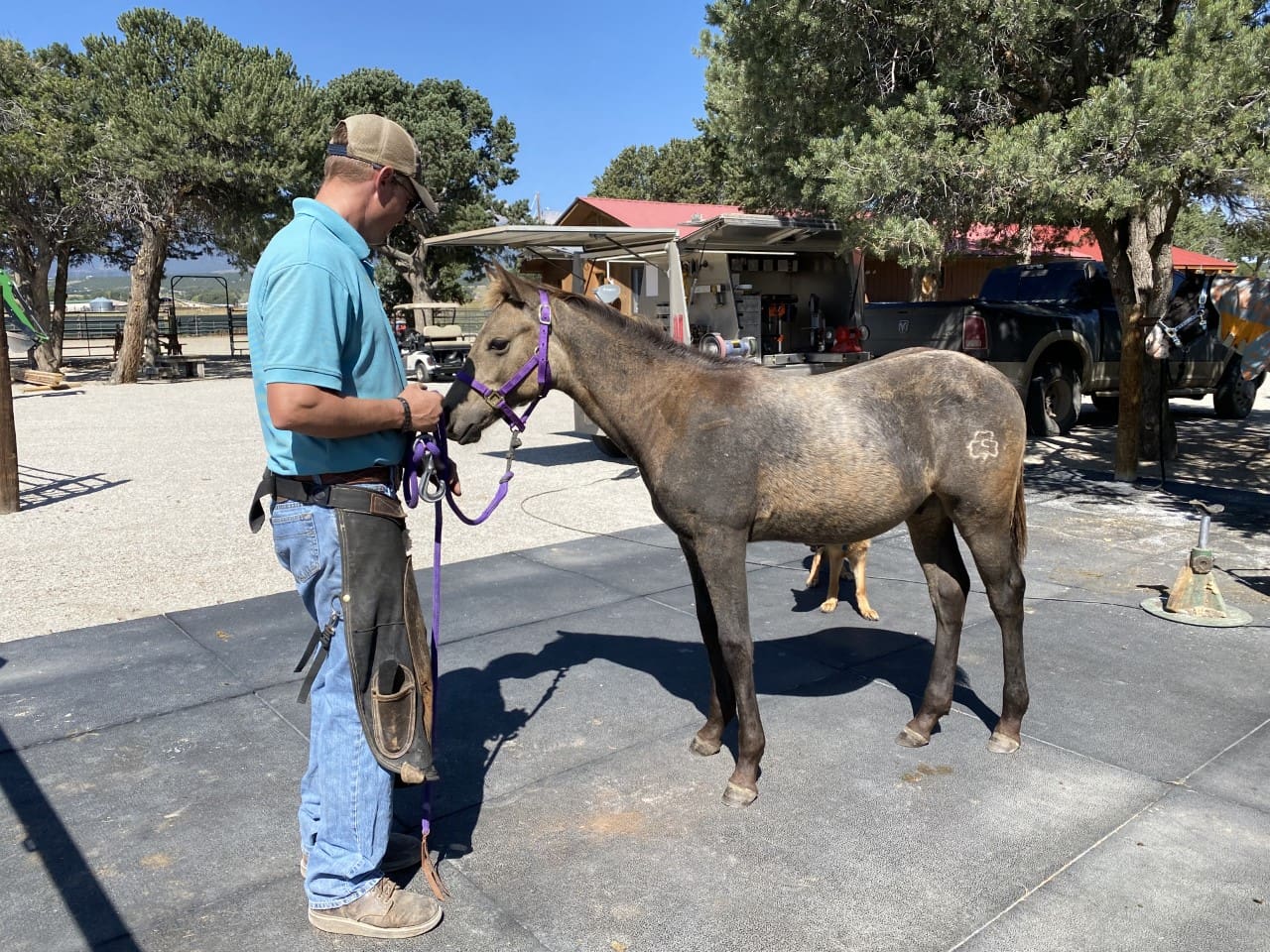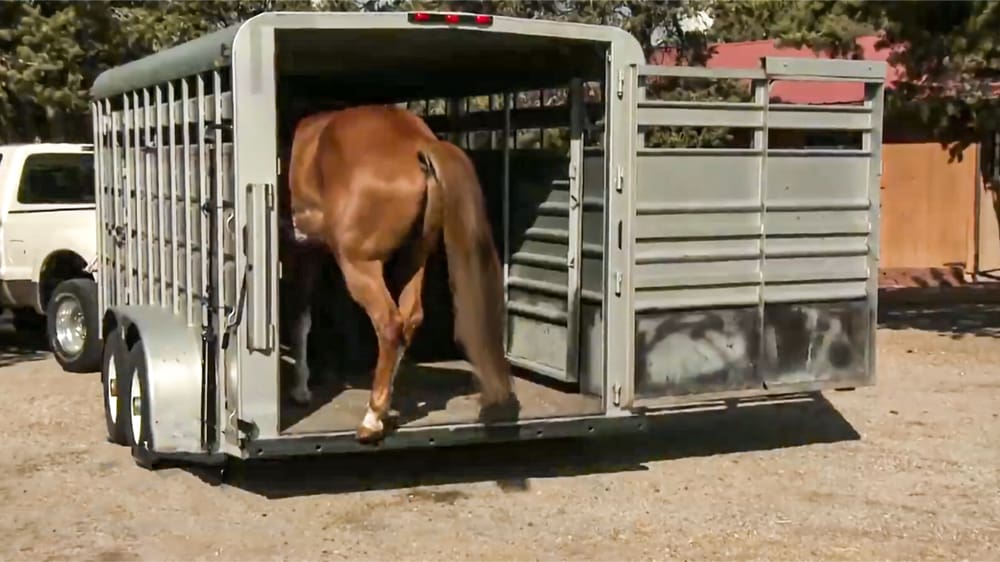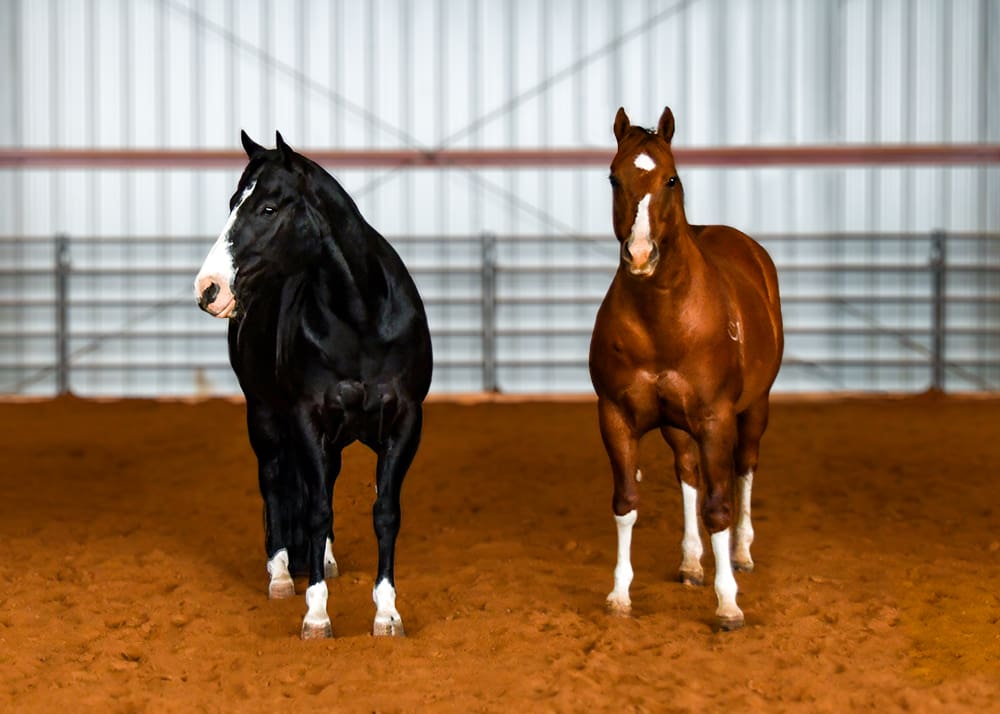I have lived with and worked with horses for more than half a century. And the older I get, the more appreciation I have for horses and their willingness, generosity and ability to forgive. It never ceases to amaze me how they tolerate some of the crazy things we humans do and how they will keep on trying to please.
Over the decades, I have learned that horses thrive on structure, consistency, praise and discipline. They crave leadership and authority and they feel safe and content in its presence. Leadership is very black and white to a horse and he knows it when he sees it. There is no faking leadership to a horse.
In domestic herds, groups of horses that are forced together, sometimes there are unqualified horses in the alpha role and the other horses know it—they agree to the terms, but do not have respect or admiration for the stand-in. Being a bully does not make you a leader and although a more subordinate horse will defer to the space of a more aggressive herd mate, he does not respect the bully as his leader and certainly does not like him.
A true herd leader is not a bully, but is willing to dish out discipline when it is needed. The true leader of the herd is responsible for the herd’s safety and for insuring that all the herd mates are good citizens of the herd—sometimes that means disciplining an unruly horse.
Horses recognize true leadership—fairness, courage, authority, confidence, intelligence, honesty, responsibility. When horses find a true leader, they have the highest respect and deference for and come to worship the ground their leader walks on. They trust and want to be with their leader and are always on the lookout for ways to please—to stay in the good graces of the one in charge.
To me, this is the ideal relationship to have with a horse and it makes me a much better and stronger person to live up to the ideals of my horse. When your horse thinks of you as the supreme leader, he will go anywhere with you, trusting you to look out for his well-being, having faith in your decisions and knowing you have his best interest in mind. He will work hard to please you and will get his feelings hurt if he thinks you are unhappy with him. But that attitude comes at a price—you have to earn it– and it is easily lost if you fall down on the job.
Once your horse recognizes the qualities of a true leader in you, it means that he trusts you to be fair, consistent and protect him from anything that could hurt him. That trust can be lost in an instant by asking the horse to do something that causes him to get hurt or frightened. This is an important obligation of the leader and should never be overlooked.
Horses are herd animals and as such, are instinctively drawn to the herd; but membership into any herd is not a guarantee. In the domestic setting, a new horse introduced an existing herd will automatically be shunned and treated harshly, as if to say, “We do not want you—go away!” Once the new horse shows a certain amount of contrition and a willingness to respect the hierarchy of the herd, he will be allowed provisional membership. But he is treading on thin ice and knows that if he is not on his best behavior, he could be once again banished from the herd.
Acceptance into a herd means that you are willing to abide by the rules of the herd and be a good citizen to the herd. Horses are very good at learning and following rules and as long as rules are clearly defined and consistently enforced, horses will follow the rules religiously.
There are many important lessons for us to learn from life in the horse herd. To be accepted as the leader, you have to establish authority right away and not worry about being liked—that will come later. You have to take charge, establish the rules and demonstrate your willingness to enforce them. Then your horse will come to accept your authority, feel safe in your presence and be eager to please you.
You cannot bribe or pamper your horse into thinking of you as a leader. That is not within his frame of reference. If you start out your relationship by begging him to be your friend, you automatically put yourself in the subordinate position. Horses crave authority, not pandering.
If you are the leader in your herd of two—you and your horse—then it is up to you to set and enforce the rules. Always. You lead—he follows. If your leadership skills are inadequate, your horse will step into the leadership role and start making all the decisions, like where you both go and how fast you get there. In that case, sooner or later, your horse will make a decision you don’t agree with.
It is a hard thing for some people to accept, but horses thrive off both praise and discipline; he gets a lot more of the latter in the herd. Praise is only meaningful to the horse if he has earned it and if he thinks of you as his leader and someone he wants to please. And without discipline, rules have no meaning and the horse will not make an effort to please you. If there are no rules, there is no leadership.
Discipline and praise go together and the horse needs both. If you constantly shower praise on a horse, without him making any effort to earn it, why should he keep trying to please you?
Your horse needs to know when you are pleased with him and know when you are not. Often just a stern word is all it takes, especially when the horse has an attitude of wanting to please you. But just like a child, the horse needs structure and rules to follow and ramifications to be meted out if he disobeys a rule. Otherwise, you end up with a very unpleasant animal—whether it is two-legged or four.
All of my horses, selected by me largely for their temperaments, fall into the category of very willing and eager to please. That does not mean that they are always perfect, never make mistakes or never misbehave. Since humans have been breeding horses more for pleasure and recreation than for beasts of burden for nearly a century, as a rule, horses are much better tempered than they used to be.
But this eager and willing attitude can turn into the likes of a tantrumming toddler in the presence of inadequate leadership. Recognizing when a horse is trying his best, when he is goofing off and when he is blatantly breaking the rules, is the first step in nurturing the “try” in your horse.
When I issue a directive to a horse, it is not his actual response or performance that matters—it is the effort he makes to do the right thing. If he tries, he gets rewarded and praised. If he doesn’t, he gets scolded and put immediately back to work. He doesn’t have to be brilliant, but he does have to make an effort.
Although praise is a great motivator for horses and scolding is a great dissuader, the best motivator of all for horses is comfort. When my horse puts out a good effort in response to something I have asked him to do, I always acknowledge it by whispering sweet-nothings to him, rubbing him on the withers and leaving him alone for a moment to let him rest and think about how good it feels to be a good horse. When he cheats me or doesn’t try hard enough, I put him immediately back to work. When he makes an exceptional effort, I might just stop what I am doing and immediately put him away.
Equine behaviorists have long known that safety and comfort are the greatest motivating factors of a horse’s behavior. Often people are surprised to learn that it is not food, as it is with dogs. Horses can find the food on their own—they don’t need a leader for that.
Horses only feel safe in the presence of a strong and committed leader who is fair, in-control and makes all the important decisions. Horses are comfortable when they are allowed to take it easy and have the satisfaction of feeling appreciated. Pampering, indulgence and a lack of rules and structure can turn a good horse bad in a matter of hours.
If you watch for and acknowledge the try in your horse—his effort to do the right thing or to please you– and recognize and reprimand when he is disobedient or distracted, he will work hard to stay on your good side and he will feel safe and content to be with you and to do your bidding.
All the money in the world cannot buy this kind of respect and devotion from a horse—you have to earn it by being a strong leader and recognizing your horse’s effort, be it good or bad. This is a tall order—that’s why horses make us better people.
Click here to Become a Julie Goodnight Library Member
Enjoy the ride,
Julie
Get Julie Goodnight’s Training Videos: Here



